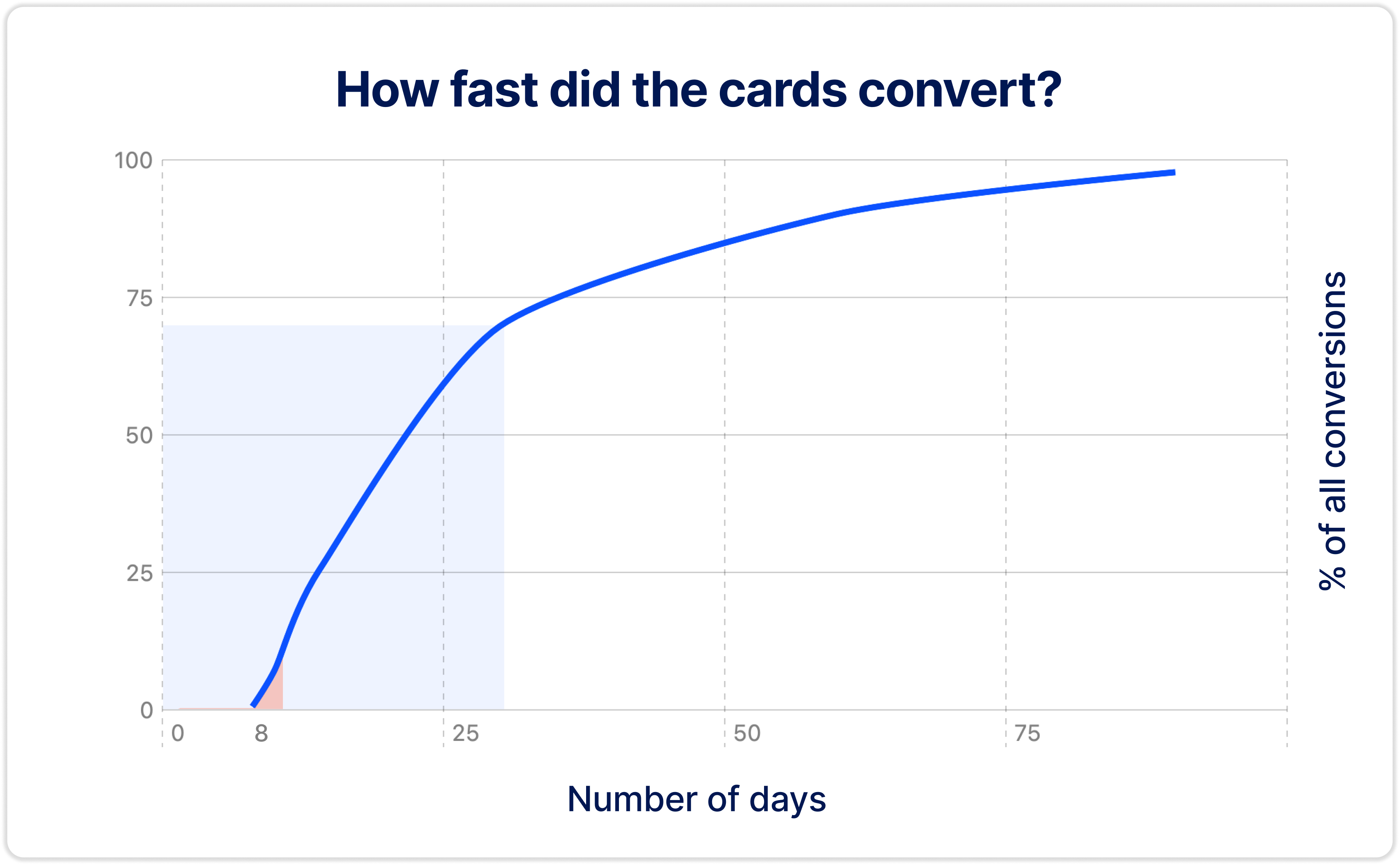When do I see the results of my Direct Mail campaign?
Yes! Your first postcard campaign is out the door. Now it’s just a matter of waiting for the results. But how long will it take before you can expect the first conversions from your campaign?

Dennis Koster
Marketer
Read on

'A physical card lingers longer.' That’s where its power lies, but there’s also a potential risk. Driven by enthusiasm and experiences with the immediate results of digital channels, a bit of impatience may sneak in after sending the first campaign. That’s why, when sending your first Direct Mail campaign, it’s important to know what to expect regarding conversions so you can manage those expectations effectively. Both for your team and for yourself, so you can assess the results properly—and at the right time. We’re here to help you.
Different from digital channels
As quickly as an ad appears on platforms like LinkedIn or Google Ads, it disappears just as fast. In no time, your audience scrolls past it. Even an email can end up in the trash within seconds—if it’s even opened at all.
Nothing against these channels—they often perform well and quickly. The first conversions can come in immediately after going live. Sending physical cards, however, takes a bit longer.
What happens behind the scenes
After sending, a lot happens behind the scenes. The cards:
are printed;
handed over to the postal services;
sorted;
distributed across the country;
and finally delivered by the postal carriers.
If you’ve chosen the most cost-effective delivery option (batch), it can take up to 8 days for the cards to arrive. The faster method can take up to 48 hours.
High attention value
Sending physical cards requires a bit more patience, but fortunately, there are significant advantages to using them. Research by PostNL shows that the average attention time is around 2.2 minutes. But when do conversions actually happen?
It takes time: be patient
In the pilot campaigns we run with our clients, we see that conversions take a little while. In the example below, you can see when conversions from Kaartje2go’s win-back campaign occurred.
In the first 8 days after sending, only 0.6% of recipients converted. The biggest boost happened between days 14 and 30, accounting for 44.1% of all conversions. Within 30 days, 71% of conversions had occurred. This also means that the remaining 29% came in over the following 2 months!

Days until conversion | % of total conversions |
|---|---|
Within 8 days | 0,6 % |
Within 10 days | 7,3 % |
Within 14 days | 25,6 % |
Within 30 days | 69,8 % |
Within 60 days | 90,2 % |
Within 90 days | 97,8 % |
Cards are kept until the right moment
These figures support the idea that cards can stay on desks for a while until the right moment comes and relevance emerges. In the case of Kaartje2go, this could be when someone near the recipient had a birthday, or when they wanted to celebrate someone with a card or gift.
It could also be when a customer’s stock of sports nutrition runs out, as with XXL Nutrition, or when dog food needs replenishing, as with Butternut Box. These moments can’t be scheduled, but it’s important that you’re present when they occur.
We see that people hold onto cards until the moment they want to act on the offer.
Conversion rates
What conversion rates can be expected? That depends on many factors:
The offer
Is the incentive strong enough to persuade?The segment
Who are you sending the cards to, and have the recipients recently heard from you? Are the contact details still up to date?Combination with other channels
For example, email.The copy
Is there too much text? Are influence techniques like scarcity, urgency, social proof, and reciprocity applied effectively?The design
Is the card attractive and recognizable?
Conversion rates of winback campaigns
How well your cards perform depends on many factors. Below, we share some of the results from recent win-back campaigns we’ve run with our customers.
Company | Conversion rate | ROI |
11,5% | 718% | |
12,3% | 97% | |
3% | 3137% | |
Online budget supermarket | 8,2% | 781% |
Related articles
Read more blogs

